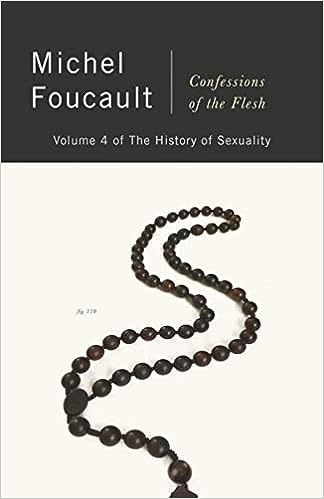A Brief Book Summary from Books At a Glance
by Steve West
About the Author
Michel Foucault is one of the most influential thinkers of the 20th Century. His iconoclastic studies have had an enormous impact on the social sciences and cultural studies. Understanding Foucault is very important for understanding the values and thought-patterns of anti-Christian contemporary culture.
Table of Contents
Part 1 – The Formation of a New Experience
Part 2 – Being Virgin
Part 3 – Being Married
Summary
Part 1 – The Formation of a New Experience
The church fathers did not invent their own sexual regime but incorporated the views of the philosophers concerning self-control in marriage, fidelity between spouses, and sex for the purposes of procreation rather than pleasure. They put forward the Christian sexual ethic as implementing the ideals of the philosophers. For Clement, both marriage and virginity were allowable paths on the ascent to heaven. His instructions were based on the precepts of doctors and natural wisdom, the universal logos and reason, and Scripture. Nature, reason, and God’s word aligned. Much of Clement is borrowed from the Stoics but tied to the logos and fitted into the Christian system. He links the purpose of marriage to procreation, and as such procreation is to govern the couple’s sexual conduct. Couples need to know the kairos for sex, which is not just the right time for relations but also the right conditions governing their behavior which gives it a positive value. It is essential to see that Clement is not considering aphrodisia on its own, but only as something appropriate to marriage. The focus is on marriage, and this is the first of a new genre that examines and analyzes the sexual relationship of spouses.
Like others, Clement connects the goal of sex with having progeny. This is not for the sake of the man or society in the first instance, but for God since God commanded us to be fruitful and multiply. God created man in his own image and loves man, so in procreation we cooperate with God in creating what he loves. Sexual relations are to be conducted according to the logic of human nature (with relation of body and soul), the logic of nature generally, and the logic of the relationship between Creator and creation. Clement argued that in nature we find negative examples of how sex ought not to be conducted, and that procreation must be coextensive with the aim of the sex act; this entailed seed must only be planted in the reproductive organ. As a rational being, man’s soul must control his body so that he acts in moderation. Man desires procreation and therefore must avoid fruitless seed-sowing. A man must only have sex with his wife, but not when she is menstruating (since she cannot conceive) and not when she is pregnant (since she cannot conceive again).
Clement cites the litany of potential health problems that can happen to men when they are excessive in sexual acts and argues that it stands to reason that men will accept rational restrictions and be controlled. He says that to treat one’s wife as a courtesan is to commit adultery with her and that such sins even in the marriage bed are not hidden from conscience and the light of the logos. God cannot live in darkness and so withdraws his light from those who are defiling themselves. Sexual relations must be pure so that we can grow towards heaven with purified flesh. Clement argues that the sin of Adam and Eve was not sex itself, but that they did not have sex at the right kairos; they were too young and did not wait. There is a regimen for sexual acts, and occasions that make it lawful to engage in them. “[T]he construction of a sexual code, organized around marriage and procreation, was largely begun before Christianity; outside it, then alongside it. Christianity essentially took charge of it” (p. 36). . . .
[To continue reading this summary, please see below....]The remainder of this article is premium content. Become a member to continue reading.
Already have an account? Sign In
